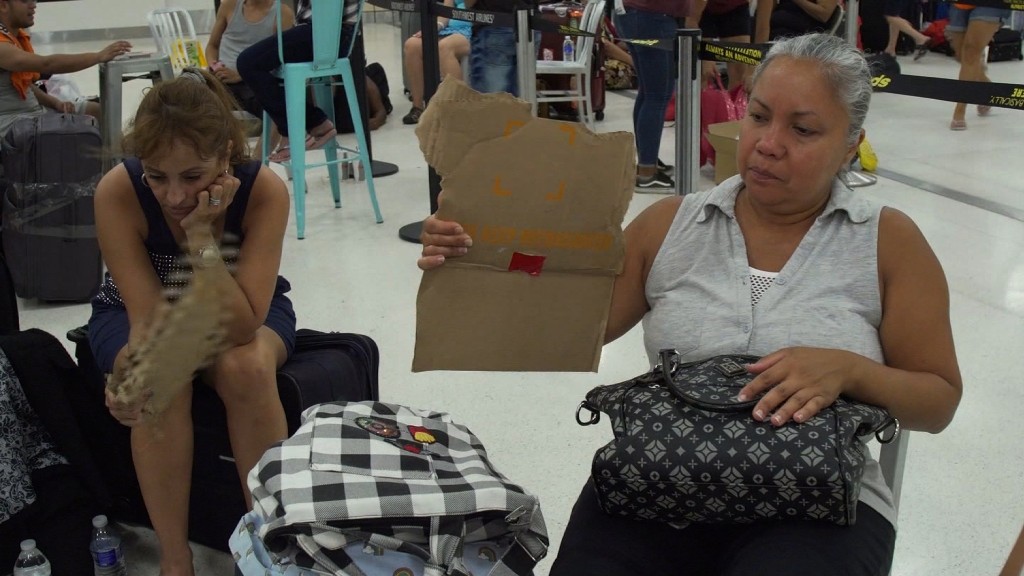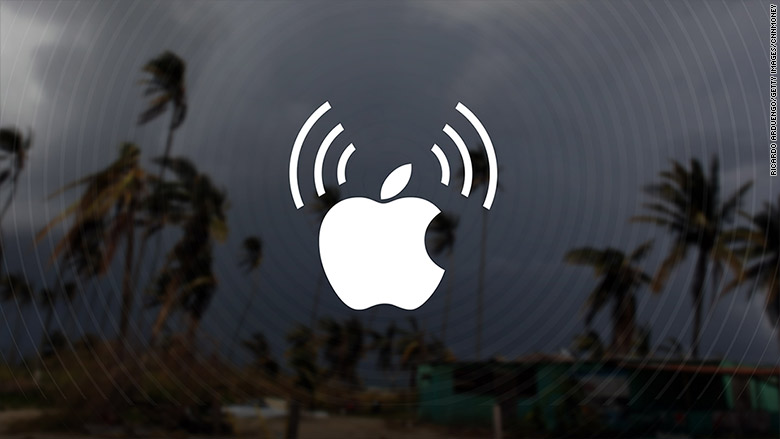
Trump's top telecommunications official is calling on Apple to take a step to boost public safety in natural disasters.
There's just one problem: Apple (AAPL) says it can't.
Ajit Pai, the chairman of the Federal Communications Commission, urged Apple to activate the FM radio chips included in its iPhones to "allow Americans to get vital access to life-saving information."
When cell service goes down, as is currently the case in much of Puerto Rico after Hurricane Maria, a phone may still be able to pick up the FM signal, if the chip is activated.
"Apple is the one major phone manufacturer that has resisted doing so. But I hope the company will reconsider its position, given the devastation wrought by Hurricanes Harvey, Irma, and Maria," Pai said in a statement.
The FCC chairman then quoted an editorial from a Florida publication calling out Apple CEO Tim Cook by name after Hurricane Irma rammed through the state. "As the Sun Sentinel of South Florida put it, 'Do the right thing, Mr. Cook. Flip the switch. Lives depend on it.'"
Related: Trump's FCC criticized for hurricane response
In response, Apple said its most recent iPhone models do not have that option.
"iPhone 7 and iPhone 8 models do not have FM radio chips in them nor do they have antennas designed to support FM signals, so it is not possible to enable FM reception in these products," Apple said in a statement.

However, Apple did not say why it wouldn't consider activating chips in older iPhone models.
"There's no reason from a technology point of view not to do it," says Jeff Kagan, a telecom industry analyst. Critics suggest that Apple does not want to undermine its own streaming service by activating the FM chip.
"Apple cares deeply about the safety of our users, especially during times of crisis and that's why we have engineered modern safety solutions into our products," Apple said in its statement.
Pai's comments on Apple come just days after the FCC was criticized for not doing enough to respond to the crisis in Puerto Rico and the recent hurricanes in Texas and Florida.

